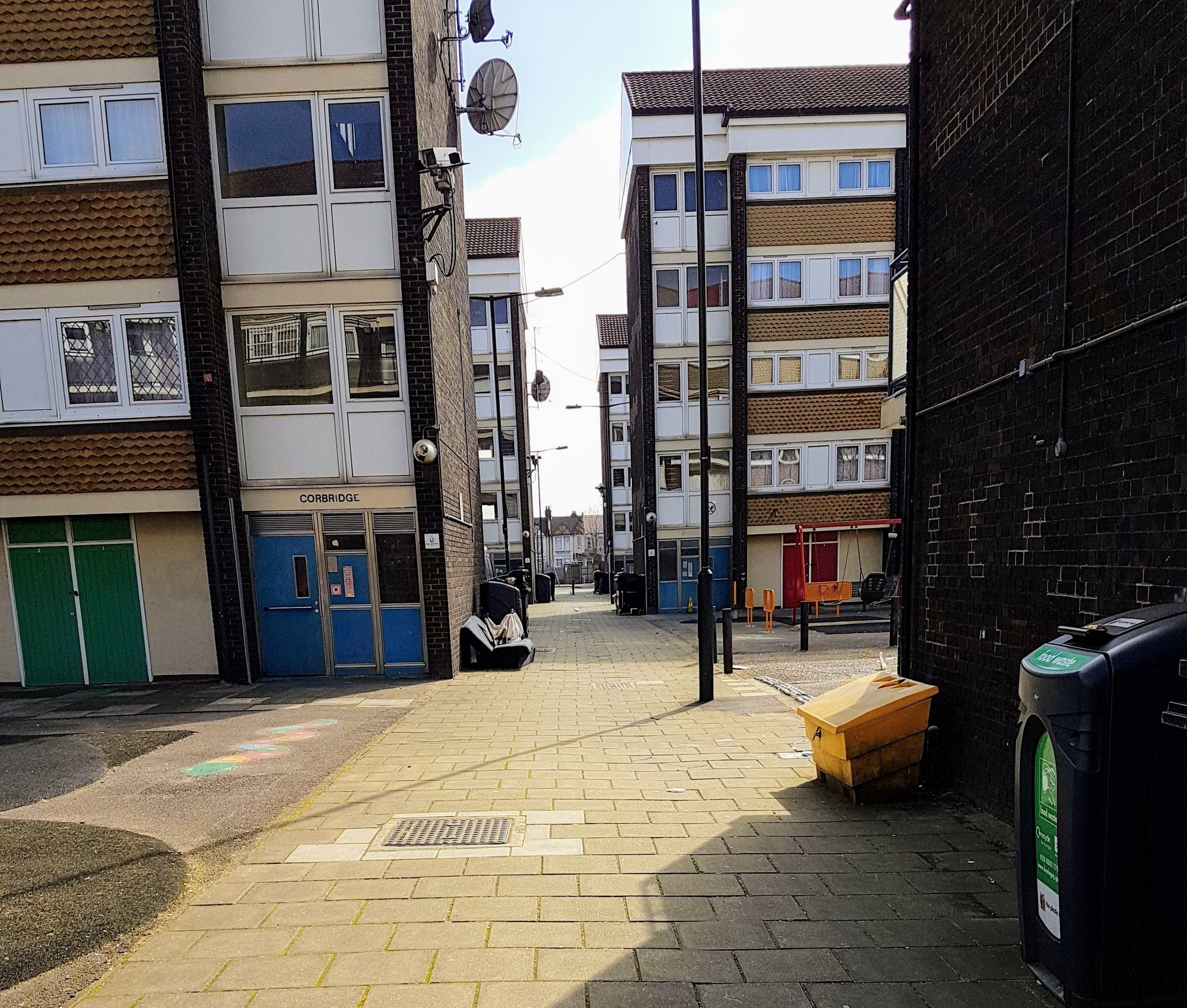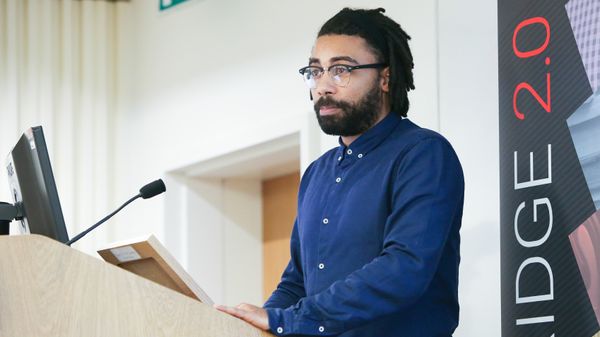*I originally wrote this in late 2020 as part of the launch of Black Thrive Global, just before my viva voce.
Early life
If there is a story to be told about my life, it would be about moving between spaces, some spaces where people like me are expected and other spaces where we are not. I grew up on the Northumberland Park Estate in Tottenham, which is consistently ranked in the top 10% most deprived wards in the country. When I spent time away from Northumberland Park, it was in foster care. My mother, who emigrated to the UK in the 60s, suffers with severe mental illness and throughout my childhood and teens, spent time, sometimes years, in secure hospitals.
Early school life
I don’t remember much of my primary schooling except that I missed a few terms in year two or three during one of my mums’ episodes. I do remember being delighted to return and see all my friends, but hesitant, perhaps ashamed, to tell people why I hadn’t been at school. That shame followed me for a long time.
Secondary school was a different matter. By the time I was 15, I was already living on my own and felt myself a fully-fledged adult. I had already experimented with drug dealing and decided it wasn’t for me. I focused somewhat intently on passing my GCSE’s as a means of escaping the potential drudgery that my life up to that point suggested would be in store. Northumberland Park Community School (now Dukes Academy) had a GCSE pass rate of 19% (less than 1 in 5 students getting 5 A – C’s not even including Maths and English) at around the time I was graduating. On that standard, I did well. In the main, because I just happened to find school relatively easy, in part because the standards were low. The ambition of the top-set science class that I was in was to get students a C grade.

Armed with these GCSE’s, I had assumed, based on what the teachers were telling me, that the world would be my oyster and there would be no further obstacles to get in my way. They were wrong. Indeed, obstacles don’t end; they change. I gave up on my first year of A-levels, as did many of the people in my school who managed to start them. I persevered with the help of a few good teachers, some I’m still in touch with today, and passed my A-levels with good grades and the magic 320 UCAS points.
University
Care leavers are relatively unlikely to go to university. Some estimates say around 12% of care leavers go to university by the age of 23, for everyone else that figure is approximately 42%. Few people on my estate had been to university, and if they had, they didn’t talk much about it. I didn’t have the cultural capital to know that the name of the university you attend is more important than the grade you get. But arriving at Brunel was an achievement for me. During this time, I began to understand that being Black, a care leaver, working-class or any other marginalised category, can make you feel like an unexpected guest in some spaces.
That someone like me should be walking the halls of a university was barely a twinkle in the eye of the university administrators. Two brief examples illustrate what I mean. When I started, to get accommodation on campus, you had to pay a £250 deposit. The deadline for that deposit was within mere weeks from accepting a place, to the course starting. Importantly, it was before any student loans would arrive in my account. Naturally, I presume people’s parents pay this money? But what if you don’t have parents that can pay or parents at all? It wasn’t clear to me that on-campus accommodation was for ‘term time only’, usually, people go back to their parents’ house at the end of the academic year. What if you haven’t got parents homes to go back to? At the end of my first year of university, I became homeless. Luckily lots of these omissions and oversights have been resolved over time. But they speak to the unexpectedness of being a care-leaver and an undergraduate.
Perhaps obviously, university was challenging for me, juggling housing, finance and family issues didn’t give me much time to focus on my education. But I scraped that all-important 2:1. Again, thinking that now, at last, the world was my oyster. I hadn’t banked on coming out to a full-blown recession.
After university, I went straight on to Jobseekers Allowance, by this point, I was no longer homeless, and the council had put me up in a one-bedroom flat. To pay the bills, I had to sign on, and I made finding work my job. It took a year. That year crushed me. So much so that I went on to write an entire PhD about unemployment. I suppose this was the point at which I acquired a new shame.
Career
Although getting into work was hard, considering the economic climate, once I was in work, other things also got in the way. I had never really engaged with middle-class people as an equal up until I got my first proper job. It was a local government graduate scheme, the pay was good, and the work suited me. But relating to Oxbridge educated policy types was very difficult. They had no idea of basic things, like what an electric key is. It was all hummus, avocados and knowing random back bench politicians by name. By the time I was six months in I was spending more time thinking about how I came across than the work.
I tried a bit to be a pretender, to try to embody white middle-class behaviours and norms. But it was taking up almost all my mental resources, and even using up all that cognitive capacity; I was still rubbish at being middle class. Luckily there were, although not many, senior Black people around me whom I could talk to. Through watching and engaging with them, I learnt two things that have stuck with me since and that have led me to feel more comfortable in ‘spaces where I don’t belong’.
The first is that doing your work well is the most important thing. This proposition is entirely obvious, but in our ambition, in trying to progress, we can often fall into a sense that – ‘if they like me, they will promote me’. By trying to be liked, in my case, I was distracted from doing the work well. Secondly, if you know that racism, sexism, classism or any other ‘ism won’t allow your boss or some organisation to see your value, then no amount of schmoozing will help you. It is better to accept that and move on than to keep trying and keep having your confidence destroyed.
From my own learning, I only add one thing. It’s a cliché, but communication is key. Although I make no bones about my background, I make an effort to ensure that people in the workplace can understand me. If one of my friends from my estate does something good, I say ‘Sick!’ or ‘Hard!’. These phrases would baffle people who don’t have a London working-class background. Instead, I use ‘Awesome!’ or ‘Amazing!’. This isn’t about changing who I am; it’s about recognising that in certain circumstances, different ways of expressing oneself are required to be understood. And we must be understood!
A fork in the road
I spent a few years in local government and landed some things that I’m proud of, which are (hopefully) still benefiting people today. But austerity was a terrible bedfellow. The massive cuts to the public sector between 2010-2015 made people blinkered by cost-cutting initiatives, and I sought out a new challenge. I applied for a masters degree at the LSE. I had no money saved. I had just about cleared all the debts I accrued in my time as an undergraduate. I wasn’t expecting to be accepted so hadn’t thought about how to pay for it. Luckily I did get accepted. With a full scholarship. Now those Oxbridge types from local government seemed relatively normal in comparison to LSE students talking about Yachting.
But by this point, I was comfortable in who I am, my story. The fundamental shift, the thing that made being in a place with the children of heads of state and multi-multi-millionaires easy, was that I knew I deserved to be there as much, maybe more, than them. If one person with all the advantages in the world arrives at a place and someone with none of those advantages is there too, I say the latter deserves the recognition.
Once I started the masters at LSE, I immediately decided to stay. Not many people from my background are able to enter universities like LSE, and indeed, the number of Black academics at the university is extremely low (I could count them all on one hand). I had an opportunity, and I grasped it. Five years later, I finished a masters and then a PhD entitled “They Think I’m A Scrounger: A Social-Psychological Examination of the effects of Stigmatisation in Unemployment.” My viva (final examination) is on the 23rd of November.
Perhaps by the time you read this, I will be a Doctor. Whether I am, or am not, know that I did it as a working-class Black man from Tottenham, and as a care-leaver. That is all I can be. The incompatibility of these categories is in other people’s minds, not mine.
